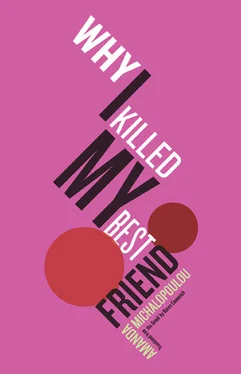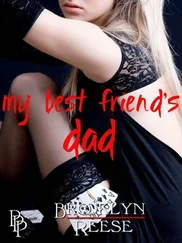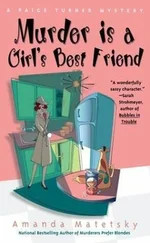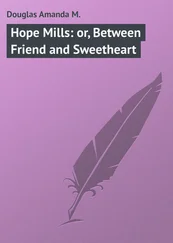“You’re twenty-six, when are you planning on getting married? Do you want to end up like Aunt Amalia?”
“I don’t want to end up like her, or like you, either.”
Mom gives me a hurt look, a perfect imitation of the women on her soaps. She doesn’t wear makeup or curl her hair, but she’s mastered that wounded look of middle-aged actresses watching as their daughters or lovers walk off, leaving them helpless. It makes me want to smash the screen. I don’t know anything more satisfying than the act of throwing a television through a shop window.
“Are we going on vacation together this year?”
Anna’s voice sounds pinched on the other end of the line.
“What happened?”
“Thierry and I broke up. Won’t you comfort your old friend?”
It turns out Thierry was more interested in whales, turtles and oil spills than in Anna. “Merde, he can go live with his turtles, I’ve had enough!” She tells me that I was right, environmentalism is dangerous, because it distances you from people’s real problems. Now she’s working for a lawyer, a friend of hers from the collective, who defends large families in Paris from eviction.
“So, should I come to Greece and we can go crazy this year?”
“We’ll see.”
Vacations are a bourgeois habit that’s out of keeping with my new way of life. I tell Camus about my conversation with Anna. “You’re overdoing it,” he replies. “You’re always talking about that friend of yours, Anna, but you’re not that different from her, in the end. You let your ideas take over your life. No one throws bombs all the time.”
He takes off his shirt. There are no wings sprouting from his back. It turns out he’s only human, too. He pulls me down onto the tattered mattress, in the room where he once gave me drawing lessons. His fingers reek of nicotine, his breath of coffee. His smell brings me down to earth with a bang. Usually, for me, Camus is as portable as a slogan.
I bleed, therefore I am.
It’s entirely logical for me to sink my fingernails into his back.
“Maria, you’re the only one who understands me. They installed a transmitter in my TV and are broadcasting the most terrible words. They curse at me, ridicule me. If I don’t escape, they’ll drag me naked through the streets to Syntagma, to the guillotine. Where can I go? I have no where to go!”
But she does. She jumps from her third-story balcony, finally headed elsewhere, to some dark refuge. She’s in a coma when they take her to the hospital, with contusions in her brain and all her ribs broken. Dad is waving the note in his hand when I arrive. Mom’s eyes are red and swollen from crying.
“Our Amalia,” she says.
Dad brings us coffee. Mom is holding an old photograph with crumpled edges that she’s had in her wallet for as long as I’ve been alive. She and Amalia are sitting on the stoop of Mom’s childhood house in Kypseli, laughing, their mouths open in gap-toothed grins. Their knees are filthy, but their braids gleam. They’re each proudly holding a rag doll. “We were like sisters, just like you and Anna.” She starts in on the stories: how they grew up on that stoop, swapping those dolls for trading cards of Hollywood actors, and later for actual men.
“You mean she had a boyfriend once?”
“Amalia had more marriage proposals than I could count. She loved to be taken out for walks, to have men promise her this or that. But that’s as far as it ever went. She’d found her prince.” Amalia slept with the crown prince’s photograph under her pillow. It started as a family joke: Amalia was going to marry Konstantinos and on Sundays they would all go out for rides in the palace gardens. Those idyllic daydreams had led to others, about social welfare: Amalia would distribute soup and children’s toys to the poor. She wasn’t a royalist, she was a romantic. A proletarian royalist, as Anna always said. Toward the end of her life, a whole army of religious panhandlers had paraded through her house, praying for her and pocketing her pension.
“What happened when you and Dad left for Africa?”
“She cried, begged me to think it over. It was a real drama. I told her to come with us. But she couldn’t possibly, because one day her prince was going to come for her. Even at the airport she tried to get me to stay. She said she would die. And now she’s made good on that threat!”
“Mom, please. She’s not dead yet.” Though deep down I don’t think Amalia will live, either. Besides, if you jump off a balcony, what’s the use in surviving?
We’re sitting on an uncomfortable hospital bench, in a narrow hallway with the same harsh lighting you find in butcher’s shops, or prisons. Mom and I are finally sharing something, if only the cell of the same emotional helplessness. The women in Mom’s soap operas go to the hospital dressed to the nines, their emotions overflowing everywhere — rage, pain, sadness, despair. Mom just silently twists a handkerchief in her hand, one she embroidered back in Africa.
At last they let us into the ICU. They give us masks. We’re like aliens, bending over the bed of a relative who’s been infected by contact with earthlings. Aunt Amalia, hooked up to machines, with an IV and an unrecognizable face, looks like a martyred saint who’s finally at rest. No black dress with doo-dads on it, no buns or curlers in her hair. If I were to say “fart on my balls,” would the shock of it wake her up?
I bend over and whisper all the bad words I can think of in her ear, a free association of filth.
“What did you say?” Dad asks.
“A prayer.”
“Amen,” Mom says, crossing herself. “May the Virgin protect her.”
Aunt Amalia has been lying in the same position, eyes closed and with a drip in her arm, for five days. All of Dad’s siblings came to see her, and some of her old girlfriends, and Kyria Pavlina, Fotini, Martha. Even Antigone comes. She hugs me, serious and emotional. She’s wearing a suit and jewelry. The braid is gone; her hair is short now, with red highlights.
“What’s going on?” I ask.
“I met someone.” In all the years I’ve known Antigone, I’ve never seen her with a man. “It’s not the right time,” she whispers, catching sight of Aunt Amalia behind the glass in the ICU. “She looks like a caterpillar in a cocoon. Or a baby.” Amalia is in fact wrapped tightly in the sheets, her head just barely poking out. Only this caterpillar won’t ever turn into a butterfly. And the baby won’t ever grow up.
Antigone brought roses. I take them back to the apartment on Stournari and change the water obsessively. If they survive, maybe Amalia will come back to us. For now she’s in an in-between state — as she was her whole life long, for that matter: between her world and ours, in a tunnel of voices and darkness.
“I’ll take the next plane,” Anna says.
There’s no need to rush.
Anna, in a white mask, bends down over the bed.
“Wake up, Amalia, we’re going out to find you a man,” she says, her voice breaking. She wipes away a tear and takes a step backward toward the door.
“We have to do something about this. Write books, I don’t know. Ban princes from fairytales. March against monarchy, against the ridiculous consumerist production of dreams. Set them all on fire, merde, on fire!”
Anna kicks the wastebasket. The head nurse gives her a stern look. I bite my lip until the top layer peels — it’s the only aggression I allow myself when I don’t have a kerchief tied around my face.
“You really want to set them on fire?” I ask.
“More than anything!”
“Fine, then. Come with me.”
I take her by the hand and literally drag her out of the ICU.
“Where are you taking me?”
Where she asked me to. Where the fires start.
Читать дальше












